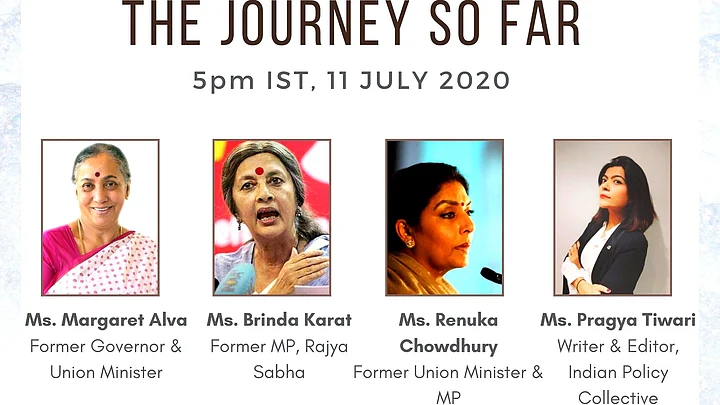The Women's Reservation Bill was first introduced in 1996 by the Deve Gowda government. In March 2010, the Bill was passed in the Rajya Sabha with 186-1 votes; and history was created. However, due to immense opposition and violence from various regional parties, the Bill wasn’t even tabled in the Lok Sabha. It has been ten years since then. With just 14.3% women elected to our Parliament, without a gender quota, women representation continues to remain marginal causing a massive deficit in our democracy. The Women’s Reservation Bill, a single step, is considered as the surest way of immediately achieving at least 33% representation.
She Runs Government dialogues is a platform organised by Femme First Foundation where political leaders discuss how to advance women's political leadership in India. The Quint has partnered with Femme First Foundation for a two-day webinar on the issue of Women's Reservation Bill.
In this session, the panelists will talk about the history of this monumental bill and trace the trials and tribulations that the concept of gender quota has undergone in India starting from the 73rd and 74th Amendments. The panelists, Ms. Margaret Alva, who has played an instrumental role in passing the resolution for reservation for women in the Panchayat Raj in 1993, and Ms. Renuka Chowdhary will shed light on how the idea of reservation for women was perceived in their respective tenures as Minister for Women and Child Development.
Our third panelist, Ms. Brinda Karat has also played an important role as an opposition leader and Vice-President of the All India Democratic Women’s Association calling for the Bill to be passed in 2010. Together, the women leaders will share their lived experiences of advocating for women’s reservation in the Lok Sabha and Rajya Sabha, and what happened each time the Bill was discussed in different political eras. This discussion will be moderated by Ms. Pragya Tiwari of the Indian Policy Collective.
(At The Quint, we question everything. Play an active role in shaping our journalism by becoming a member today.)
